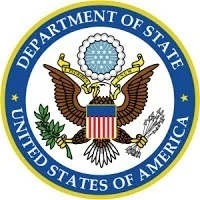
The U.S. Department of State Office of Children’s Issues has issued its annual report on International Parental Child Abduction which covers compliance with the Hague Convention on the Civil Aspects of International Child Abduction (the reporting cycle for statistics is January 1, 2014 through December 31, 2014).
Some notable points are as follows:
-In 2014, 781 abduction and access cases were resolved, 273 involving Mexico, 33 cases involving Canada, 25 cases involving the United Kingdom, 25 cases involving Germany, and the remaining 425 cases involving various countries. The term “Resolved Cases” generally refers to matters where a child is returned to his or her place of habitual residence via the Hague Abduction Convention, the left-behind parent reaches an voluntary agreement with the taking parent, the left-behind parent submits a written request to withdraw their application, or when the left-behind parent cannot be located/contacted for a period of one year.
-A total of 66 countries had 5 or more pending abduction cases involving the United States in some capacity during 2014. The report notes a number of recommendations that the U.S. Central Authority (USCA) suggests to improve resolutions to cases. The USCA most often recommended the promotion of public diplomacy and outreach activities through local embassies, consulate public affairs units, and consular sections to assist with resolution.
-In 2014, a total of 374 abducted children were returned to the United States from around the world. 571 International Parental Child Abduction cases were resolved in all countries and areas without the child’s return to the United States during the same reporting year (this total includes countries who are treaty partners with the United States under the Convention, bilateral procedures countries, countries that have other procedures for resolving International Parental Child Abductions, and countries that have no protocol for resolving International Parental Child Abductions).
-On April 1, 2014, the Convention entered into force between the United States and Japan. However, there are still more than 50 non-Convention cases of abduction to Japan, all of which predate Japan’s ratification of the Convention. As of December 31, 2014, U.S. left-behind parents have filed 31 Convention access applications. None have resulted in meaningful parental access or the return of a child to date.
-A “pattern of non-compliance” is defined as the persistent failure of a country to implement and abide by provisions of the Convention, the failure of a non-Convention country to abide by bilateral procedures between such a country and the U.S., or of a non-Convention country to work with the USCA to resolve abduction cases. Countries demonstrating patterns of non-compliance in 2014 include: Argentina, Brazil, Colombia, Costa Rica, Dominican Republic, Ecuador, Egypt, Guatemala, Honduras, India, Jordan, Lebanon, Nicaragua, Oman, Pakistan, Peru, Poland, Romania, Saudi Arabia, Slovakia, The Bahamas, and Tunisia
-The USCA reported on 18 countries where applications for return or access had remained open for more than one year after the date of filing. They are: Argentina (four cases), Brazil (fourteen cases), Canada (one case), Colombia (one case), Costa Rica (two cases), Dominican Republic (two cases), Ecuador (one case), France (one case) Honduras (one case), Israel (one case), Italy (two cases), Mexico (fifty eight cases), Peru (nine cases), Poland (one case), The Bahamas (two cases), Turkey (three cases), Ukraine (one case), and The United Kingdom (one case).
The full report can be found here:

Country-by-Country Information About Child Abduction and Divorce
(Click to find your country)
IMPORTANT: WE REQUIRE SPECIFIC INFORMATION ABOUT YOUR SITUATION OR WE WILL NOT BE ABLE TO RESPOND.
POTENTIAL CLIENTS SHOULD NOT SEND ANY CONFIDENTIAL INFORMATION UNTIL SUCH TIME AS AN ATTORNEY-CLIENT RELATIONSHIP HAS BEEN ESTABLISHED BY A WRITTEN RETAINER AGREEMENT SIGNED BY BOTH THE ATTORNEY AND THE CLIENT. SENDING AN EMAIL DOES NOT CREATE AN ATTORNEY-CLIENT RELATIONSHIP OR CONTRACTUALLY OBLIGATE THE LAW OFFICE OF JEREMY D. MORLEY TO REPRESENT YOU, REGARDLESS OF THE CONTENT OF SUCH INQUIRY.
Potential clients should not send any confidential information until such time as an attorney-client relationship has been established by a written retainer agreement signed by both the attorney and the client. Sending an email does not create an attorney-client relationship or contractually obligate The Law Office of Jeremy D. Morley to represent you, regardless of the content of such inquiry.
Copyright © 2025 Jeremy Morley | Website Designed by MozWebMedia